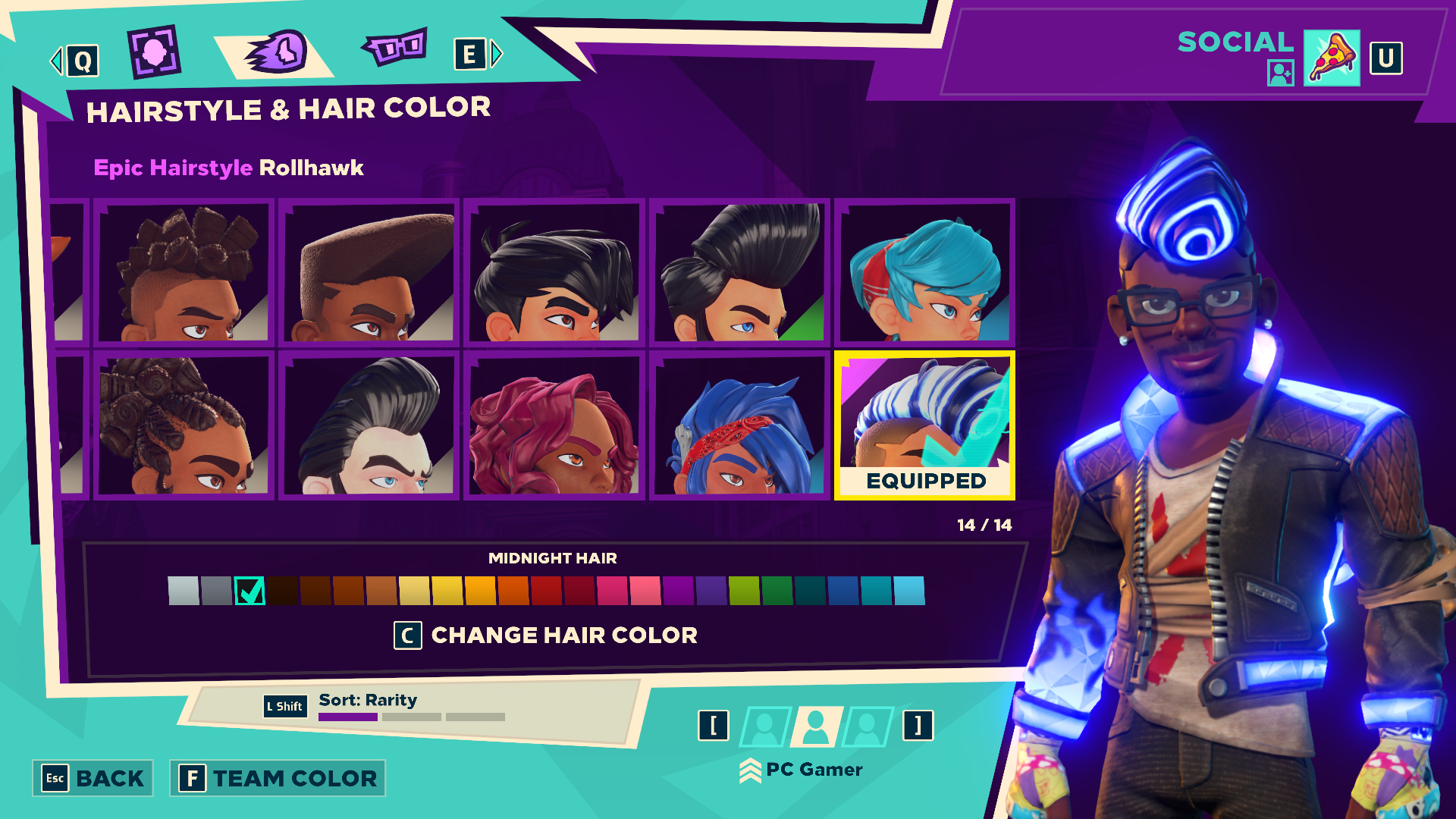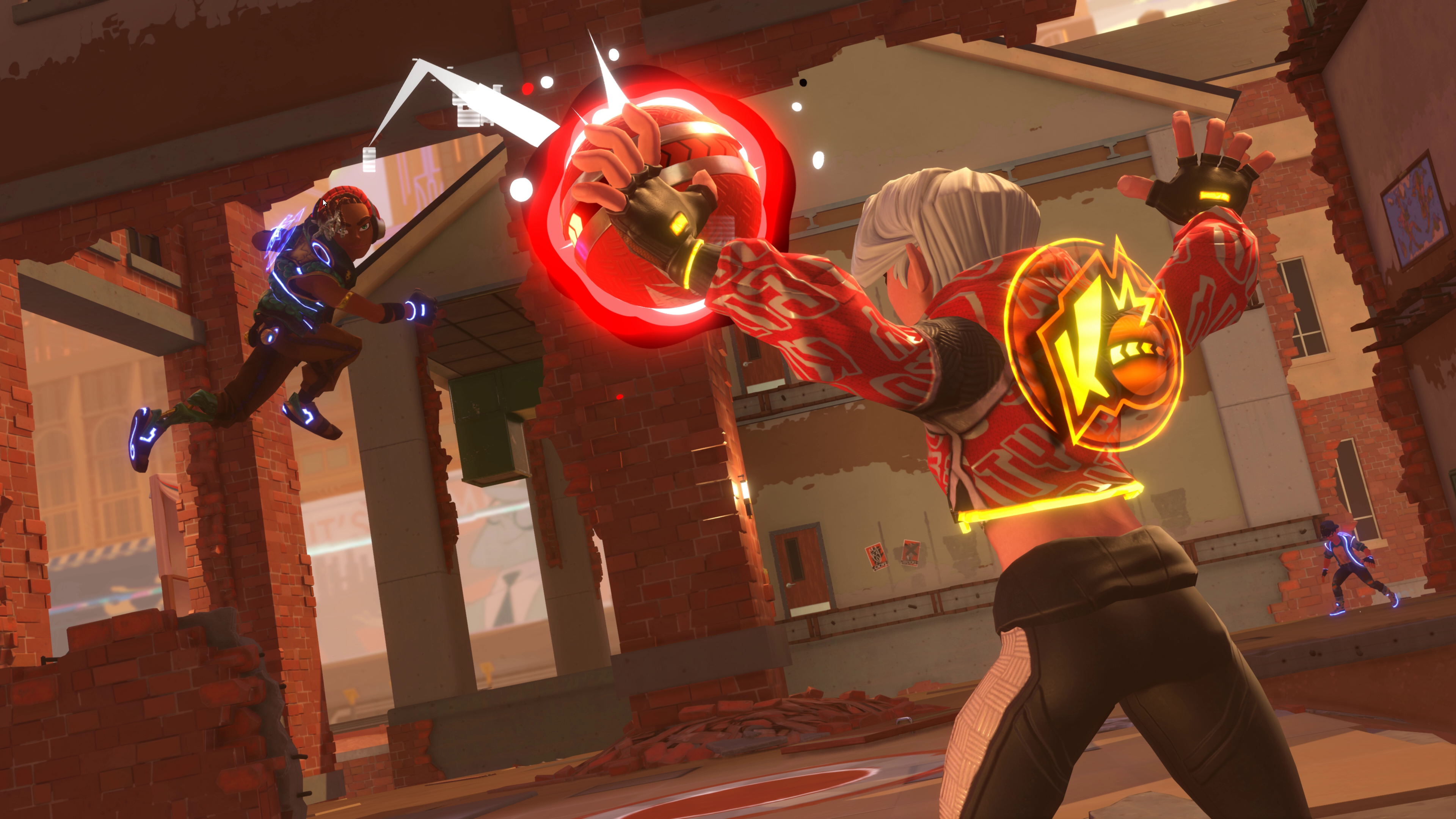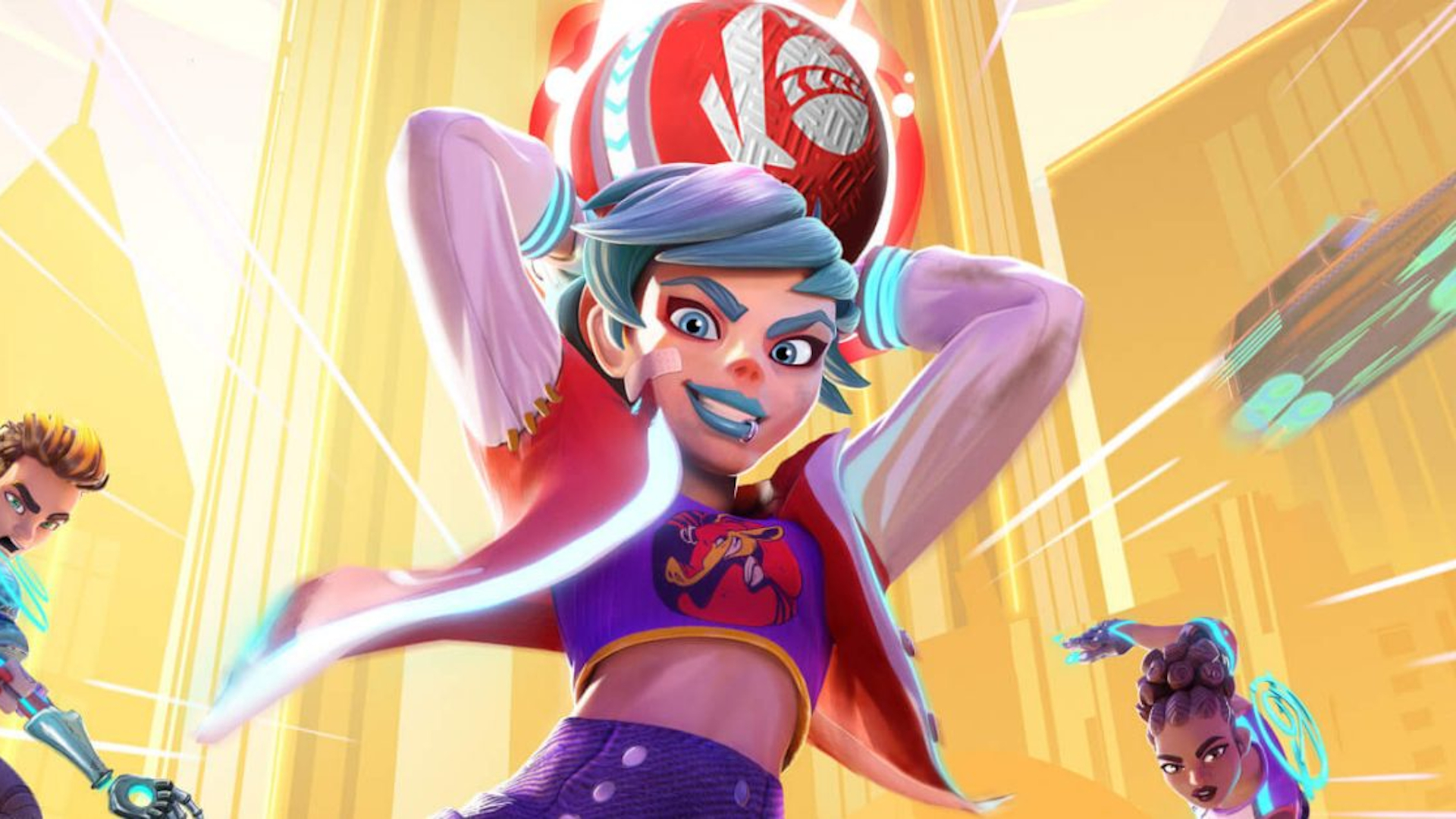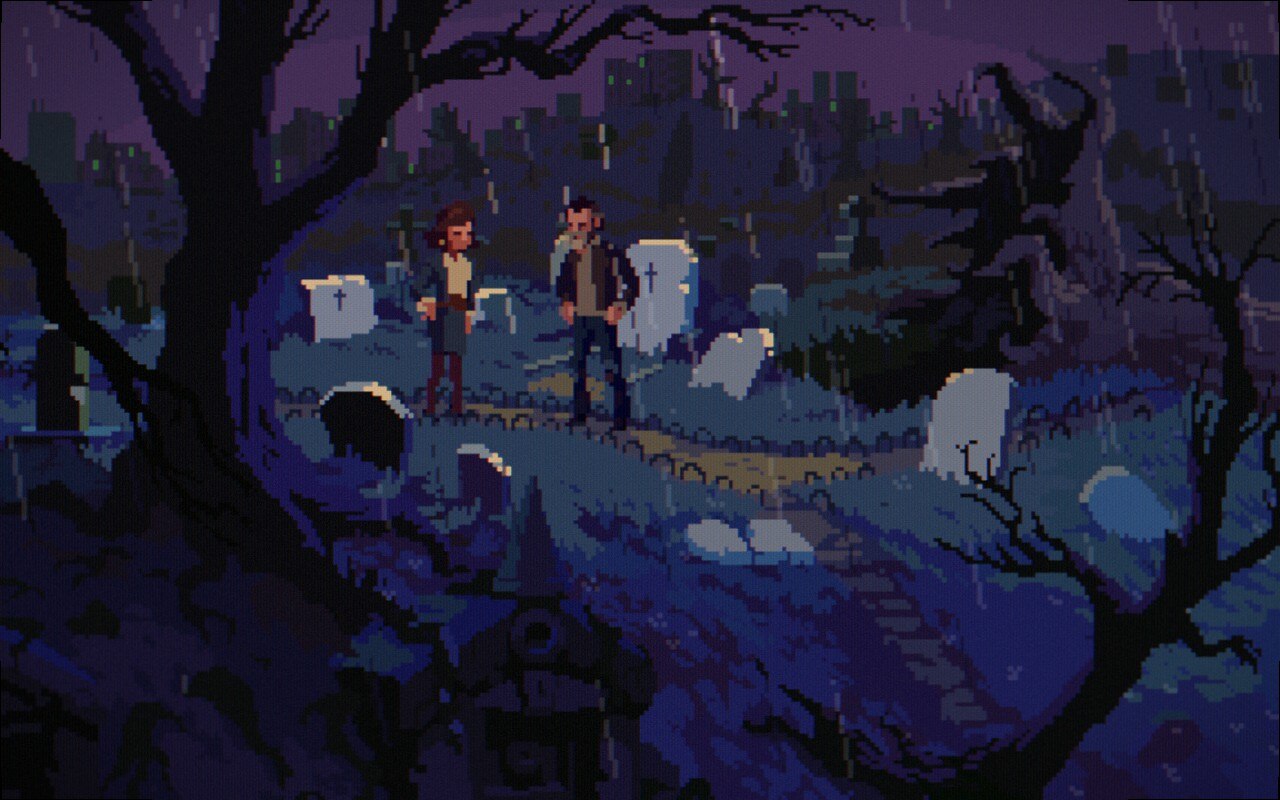Our Verdict
Knockout City punches above its weight as a complex and uniquely fun competitive brawler.
PC Gamer's got your back
My recent adventures with Knockout City have reminded me that dodgeball, the actual playground game, rules. It's the 4th grader equivalent of a Wild West standoff—watching and waiting with a full dose of adrenaline for the other guy to make a move and (hopefully) catch whatever they throw your way.
That's part of why Knockout City is so damn good. Having walked the hallowed grounds of the elementary school blacktop myself, I can feel the scratchy rubber deforming my face as my little Dodgebralwer gets gobsmacked by a supersonic sphere. I've lived that! I can't say the same for the thousands of times I've been shot or blown up in Call of Duty, thankfully.
But schoolyard nostalgia isn't the only reason I've been so obsessed with Knockout City over the past few days (I'm pretty sure my friends are sick of me pitching them on it). Beneath its cartoony exterior is a dense combat language with multiple ball types, throw styles, fakeouts, and team tactics. You're also not limited to a chalk-drawn rectangle with a line in the middle. Knockout City has the framework of a team-based shooter with large arena-style maps, deathmatch modes, and heaps of cover, but its action has more in common with the medieval combat of Chivalry than any shooter.
New Bonk City
Since every throw automatically locks on to the target, your only options to avoid a bonk are a well-timed catch or dodge. Catching the ball gives you the immediate opportunity to send it back even faster than before, and this catch-throw dynamic can continue indefinitely with the ball speeding up each time. Once the ball amps up to max speed, it flies so fast that you have to start triggering your catch before your opponent even throws it. Prolonged showdowns like these create standout dramatic moments in every match that get my blood pumping whether I'm in it or just spectating.
Toss Knockout City's trick shots into the mix, and it gets way more interesting. Like a pitcher in baseball, players can modify their standard fastball with either a flip or spin, creating a high lob throw that can reach targets above you or a wide curveball that can bend around entire buildings to a target on the other side.
There are so many ways to use these moves—far, close, slow, fast, faked, passed—but none are more satisfying than full-sending a ball 30 meters around a corner to watch it bonk an opponent who's preoccupied with what's in front of them. Hundreds of KOs later, the high still hasn't worn off.
Special ball types add extra flavor to the standard 3v3 team deathmatch mode. Bomb balls, multi-balls, low-grav balls and more can be found at central points on the map for teams to fight over (a trick right out of Halo's power weapons playbook that translates perfectly here). There's also the quirky Cage ball, which upon impact imprisons a player in a ball and leaves them open for enemies to pick up and use as a weapon (or just chuck them off the map for an easy KO). Most deadly is the Sniper ball, an American football with a laser sight that shoots so fast that actually catching one feels like cheating death.
I struggle to think of another PvP game that has considered its sound effects so carefully other than juggernauts like CS:GO and Valorant.
On top of all that, any player can curl up into a ball and become a weapon for your teammates. Ballform can be a total lifesaver when there's nothing else around, and a hit is also an instant KO, but it carries crucial risks. You're helpless while you're a ball, and if you get caught by an enemy, you're trapped in their grasp for a few seconds. That's enough time to get thrown back as a weapon against your own team, or get tossed off the edge of the map like a piece of trash (ouch).
It'd be criminal to talk about Knockout City's controls without mentioning sound design. A lack of consistent, varied audible feedback can hinder games that would otherwise feel great (Biomutant's clunky fighting comes to mind), but Knockout City is an overachiever in this area. Every single important action in the game—catches, dodges, passes, tackles, slow balls, fast balls, curved, lobbed, and every special ball in between—has its own distinct sound. And everything that you need to hear, such as the subtle whoosh of a ball heading your way or smack of someone catching a ball behind you, always breaks through the soundscape of music, announcer barks, and callouts.
I struggle to think of another PvP game that has considered its sound effects so carefully other than juggernauts like CS:GO and Valorant. As a test, I tried to play the game with my eyes closed for a few minutes and was still able to time catches perfectly and even score a few hits. And beyond being tactically distinct, the sounds are also hilariously expressive. A special shoutout belongs to whoever recorded the one-of-a-kind bonk of a red rubber ball cracking over a face. It's equal parts gratifying and traumatizing for us youth dodgeball veterans.

Ball is life
Despite an art style that suggests a casual brawler, Knockout City is deeply competitive. Like in other projectile battle-sport games Lethal League and Windjammers, volleys can get intense. It becomes hard not to take the game seriously, especially once you start to get good. I've become infatuated with mastering as many maneuvers as I can: the fake-and-throw, the pass-pass-throw, the lob-and-fastball followup—made up names for strategies that, amazingly, all seem totally viable.
It only took a few days for my Knockout City matches to become noticeably sweatier than when I started, but now that Ranked mode has arrived with Season 1, serious players have a proper proving ground on which to exert ball supremacy.
Only the two core modes, 3v3 team deathmatch and 1v1 duels, are available in Ranked and each has its own bracket from Bronze to Diamond. I've mostly stuck to the Casual playlist when playing with friends, but in my spare time I've been grinding through ranked 1v1s. Everything was going great through Bronze and low Silver, but I'm finally starting to get my ass handed to me as I approach Gold. I'd like to pretend I've kept a cool head throughout, but falling for fakeouts and mistiming catches against better players is really starting to drive me up the wall. I've taken to the game pretty naturally, but the last two days have been a good reminder that a deep game means a high skill ceiling, and I can't reach it even standing on my toes.
Total knockout
The entire game has the familiar flat-ish lighting that suggests Velan made some visual concessions to bring it to every platform.
It's always hard to gauge how successful a service game like this is going to be, but what I've seen from developer Velan Studios is promising. At launch there's a metric crapton of Contracts that challenge me to flex every dodgeball muscle I've got.
There's no battle pass exactly, but the basic level progression is similar in structure with rewards at every tier. After around 15 hours and at least 50 matches, I've climbed to level 60 with a fair number of clothes, accessories, taunts, and premium currency earned along the way. I don't usually spare much thought for my character's outfit in a multiplayer game, but I like the game so much that I've, regrettably, become someone who cares if his sunglasses pair nicely with the gloves he just unlocked.
Which is surprising, because there are parts of Knockout City's art style that are a little ugly, like everyone's oversized doll heads. The retro-futuristic aesthetic with neon accents feels a little generic and the entire game has the familiar flat-ish lighting that suggests Velan made some visual concessions to bring it to every platform (including Switch). On the plus side: Knockout City supports crossplay and cross-progression across every version with your EA account as a central link.

A good sign is that Velan is already doing a lot of things right. Presumably with the backing of EA, Knockout City was able to release a polished and complete brawler from day one. You don't have to wait for fundamental features to come around (though I would like a way to commend opponents for a good fight). Season 1's launch this week gave us the first taste of how modes will rotate in and out of playlists as well. The wacky mode on deck right now is a 4v4 TDM where there are no balls, so players have to use each other for every KO. The fun variant has already led to some fantastically tragic plays.
EA's decision to have a 10-day free trial period was also smart and has attracted an initial pool of over two million players. The game is $20 to keep or free if you're a Game Pass subscriber on console or PC, which is exactly how I'll be playing for months to come.
I hope a healthy chunk of those two million stick around, because Knockout City is simply excellent. I'm endlessly impressed with how much careful consideration has gone into turning a playground pastime mostly ignored by videogames into a rich competitive romp. There's nothing quite like it, which is why you should really give it a shot for free while you can.
Knockout City punches above its weight as a complex and uniquely fun competitive brawler.

Morgan has been writing for PC Gamer since 2018, first as a freelancer and currently as a staff writer. He has also appeared on Polygon, Kotaku, Fanbyte, and PCGamesN. Before freelancing, he spent most of high school and all of college writing at small gaming sites that didn't pay him. He's very happy to have a real job now. Morgan is a beat writer following the latest and greatest shooters and the communities that play them. He also writes general news, reviews, features, the occasional guide, and bad jokes in Slack. Twist his arm, and he'll even write about a boring strategy game. Please don't, though.


